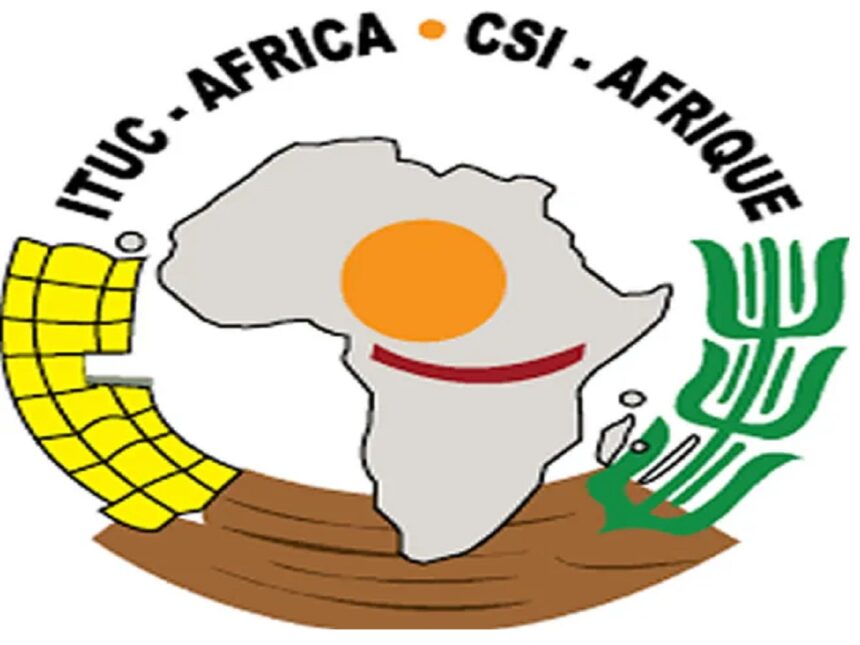African trade unions have warned global climate negotiators against heaping the bill for a rushed and unjust energy transition that could undo decades of development progress on the governments in the continent.
Meeting in Dar es Salaam ahead of the COP30 climate summit, union leaders from across the continent declared that Africa’s shift to clean energy must be debt-free, people-centred, and anchored in industrialisation and not in poverty or foreign control.
“We cannot afford to follow the same broken path — the path of extractivism, privatisation, and structural adjustment,” said Comrade Martha Tinny Molema, President of the African Regional Organisation of the International Trade Union Confederation (ITUC-Africa). “These models have failed. They have left more than 600 million Africans in the dark, while corporations and creditors grow rich on our natural wealth.”
Under the theme “New Energy for Africa: Reclaim and Restore,” the three-day strategy meeting brings together national union centres to build a unified African position ahead of climate talks. The unions will meet the African Group of Negotiators (AGN) on August 8 to forge a common agenda for COP30.
For Molema, the message is non-negotiable: “The energy transition must be a debt-free process. Debt has shackled our governments, making our leaders answerable to creditors rather than citizens. Across Africa, more money is spent on debt servicing than on health, education, or infrastructure. This is not mismanagement—it is structural injustice.”
She stressed that Africa has the right to industrialise through public energy systems that put people before profit. “We must forge an African Trade Union Energy Justice Agenda that speaks to the realities of our people and asserts our right to shape the future,” she said.
In his address, Dr. Richard Muyungi, Chair of the AGN and Special Adviser to Tanzania’s President on Environment and Climate Change, underlined the staggering cost of the transition.
From COP29 in Baku, Africa secured a $300 billion climate financing commitment which is far below the $3 trillion needed. “That is why we started what we call a battle road map—to see how we can go to $1.3 trillion,” he explained.
Muyungi warned that without equitable financing, Africa would remain stuck with cheaper but dirtier fuels: “If you can give me money to forgo development of cheaper energy and move to greener sources, we are ready. But without additional resources, we will continue to use the energy sources that help us develop.”
He also laid out Mission 300: connecting 300 million Africans to energy by 2030, whatever the source—with greener options prioritised when funding allows.
Comrade Akhator Joel Odigie, ITUC-Africa’s General Secretary, accused industrialised nations of hypocrisy. “Europe and others did not industrialise on the back of privatization—they did it through the role of the state. Even today, their states still fund development. Yet they demand that we adopt a more expensive path without comparable support.”
Odigie rejected corruption as a pretext for dismantling public services, stressing that public pathways remain essential for inclusive growth. He laid down three demands for climate financing: Polluters must pay, Illegitimate debts must be cancelled, Africa must industrialise with adequate energy, capacity, and technology.
He urged African leaders to renegotiate critical mineral contracts to keep more value in Africa during the clean tech boom. “Winning this fight requires Global South solidarity,” he said. “Trade unions must be more visible, more insistent, and closer to governments to propose workable solutions.”
READ ALSO: COP29 disappointments: African trade unions vow to push for just transition
WATCH TOP VIDEOS FROM NIGERIAN TRIBUNE TV
- Relationship Hangout: Public vs Private Proposals – Which Truly Wins in Love?
- “No” Is a Complete Sentence: Why You Should Stop Feeling Guilty
- Relationship Hangout: Friendship Talk 2025 – How to Be a Good Friend & Big Questions on Friendship
- Police Overpower Armed Robbers in Ibadan After Fierce Struggle






